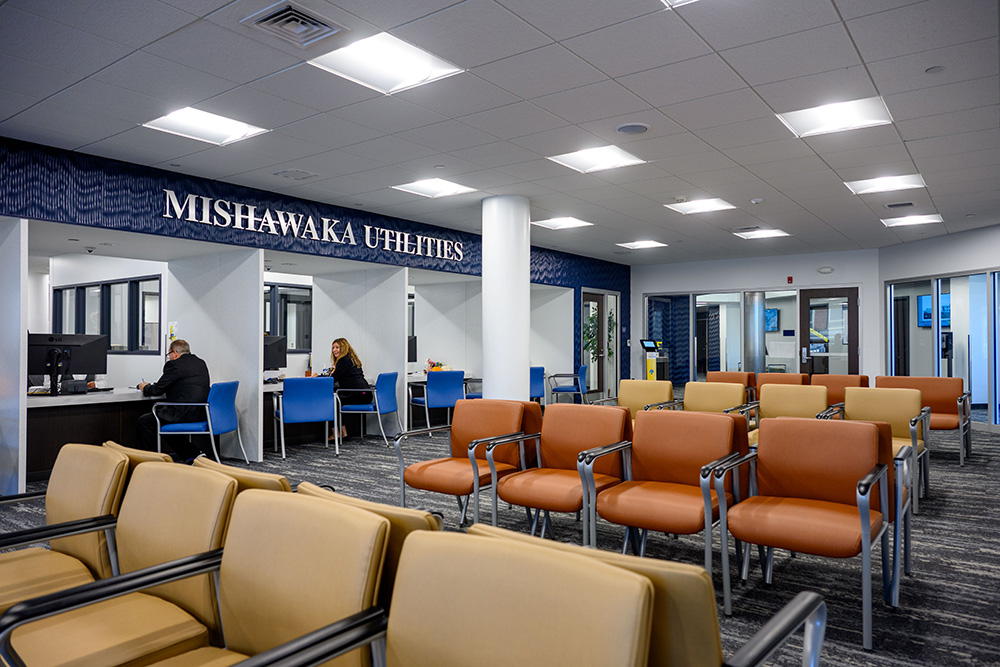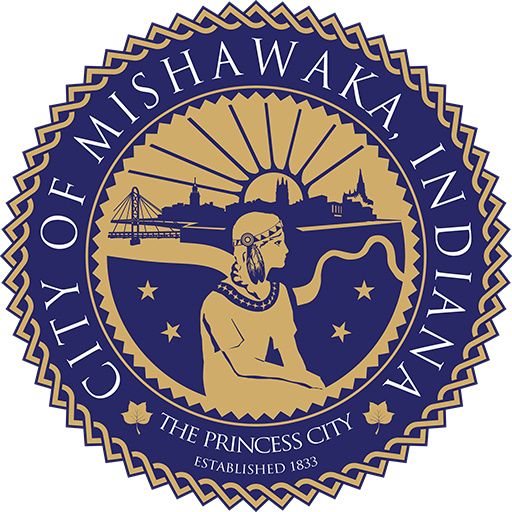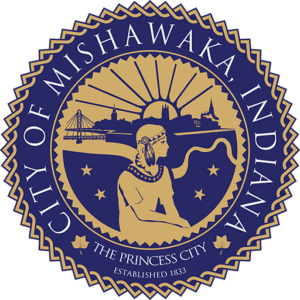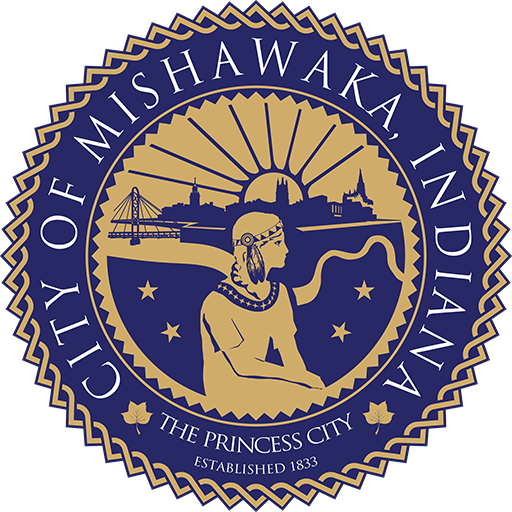Lead Awareness
Protecting public health is at the core of what we do at Mishawaka Utilities, and we take the potential of lead in drinking water very seriously. Our staff performs over 60 tests a day to ensure we are providing high-quality drinking water to you and the community. Our drinking water quality exceeds all Environmental Protection Agency (EPA) standards, including the action level for lead defined in the Lead and Copper Rule.
Lead may be found in water service lines and the internal plumbing systems installed prior to 1987. Please see our lead guide for more information on potential sources of lead in your home, how to maintain high-quality water and reduce exposure to lead, and additional resources for lead information.

What Mishawaka Utilities is Doing to Safeguard Against Lead Exposure in Drinking Water
The City of Mishawaka prioritizes the health of its community. We routinely test water for lead at homes and schools, optimize our water treatment process to minimize the risk of corrosion, and have been proactively replacing lead service lines since the early 2000s. The utility-owned portion of approximately 4,100 lead service lines have been replaced to date through capital projects. The City will continue to replace lead service lines in the coming years through future grants and capital projects. Details on these projects will be posted here when available.
You don’t need to wait for our replacement projects though. If you choose to replace your side of the service line, contact us at 574–258–1652 ext.5 or MishawakaLeadFree@Mishawaka.in.gov. We will replace the utility side of the line within 45 days if it is lead or galvanized steel, and with advance notice will try to coordinate the replacements.
Mishawaka Utilities has also been working for several years to identify lead service lines. We have compiled and digitized utility records and continue to perform field investigations to identify service line materials. However, we still do not have information on the material of many water service lines – especially for the customer-owned portions. We are using predictive modeling to prioritize future field investigations and will be do over 500 more investigations in 2025. However, if the material of your service line is unknown, you don’t have to wait for our scheduled investigations. Contact our business office at 574-258-1630 or email us at MishawakaLeadFree@Mishawaka.in.gov to schedule an in-home inspection.
Letters were mailed to customers with lead, galvanized steel, or unknown service lines in October or November 2024. Check the link below for up-to-date information on the type of service line material on your property.
Frequently Asked Questions
A service line is a small diameter pipe that connects homes and other buildings to our public water system. In Mishawaka, the City helps its customers by maintaining the service line from the water main to a shut-off valve called a curb stop. The property owner is responsible for the service line from the curb stop into their home or business. Before 1987, lead was commonly used for service lines, though these days they are typically made of copper, galvanized steel, PVC, or other plastic piping.
Lead is a naturally occurring material that was used for decades in products found in and around our homes. Historically, lead was considered a good material for plumbing because it can be easily formed into different shapes, and it resists leaks. For this reason, older homes may have lead-containing service lines, plumbing, and kitchen or bath fixtures.
Swallowing lead paint chips or breathing in lead paint dust presents the biggest risk of exposure, though exposure through drinking water can occur. Water does not contain lead when it leaves our water treatment plants, but it can enter the drinking water from corrosion of water service lines and plumbing made with lead. Also, lead can accumulate on the inside of galvanized steel pipe sections, and so homes with galvanized steel pipes that may have been downstream of a lead service line segment may also be impacted.
Exposure to lead in drinking water can cause serious health effects in all age groups. Infants and children can have decreases in IQ and attention span. Lead exposure can lead to new learning and behavior problems or exacerbate existing learning and behavior problems. The children of women who are exposed to lead before or during pregnancy can have increased risk of these adverse health effects. Adults can have increased risks of heart disease, high blood pressure, kidney or nervous system problems.
Contact your healthcare provider to find out how you can get your child’s blood tested for lead if you are concerned about exposure.
You can have your drinking water tested to better understand your risk of lead exposure, although a negative test will not rule out the potential for lead in your water service line or internal plumbing system. Tests should be performed by a state certified laboratory, and the cost is generally between $10 and $50. A list of certified laboratories can be found here.
How You Can Help
Eliminating the risk of lead getting into drinking water is a shared responsibility between Mishawaka Utilities and you. Things you can do include:
- Review our Customers’ Guide to Lead Safety and share it with others who use water at your location or who may be impacted by lead.
- Check your service line material using the link above.
- If you have lead or galvanized line material, follow the guidelines for minimizing lead exposure, including to flush your line before use and only use cold water for drinking and cooking.
- If you have lead or galvanized line material, consider replacing your portion of the line. If you do so, contact us as soon as possible so we can be sure your plumber understands our installation standards. We will replace our portion of the line if it is lead or galvanized and will make a good faith effort to coordinate simultaneous replacement of the utility-owned portion as feasible.
- If your service line material is unknown, call our business office at 574-258-1630 or email us to schedule an in-home inspection.
- Stay informed on our efforts to identify and eliminate lead service lines by revisiting this webpage for the latest updates.


